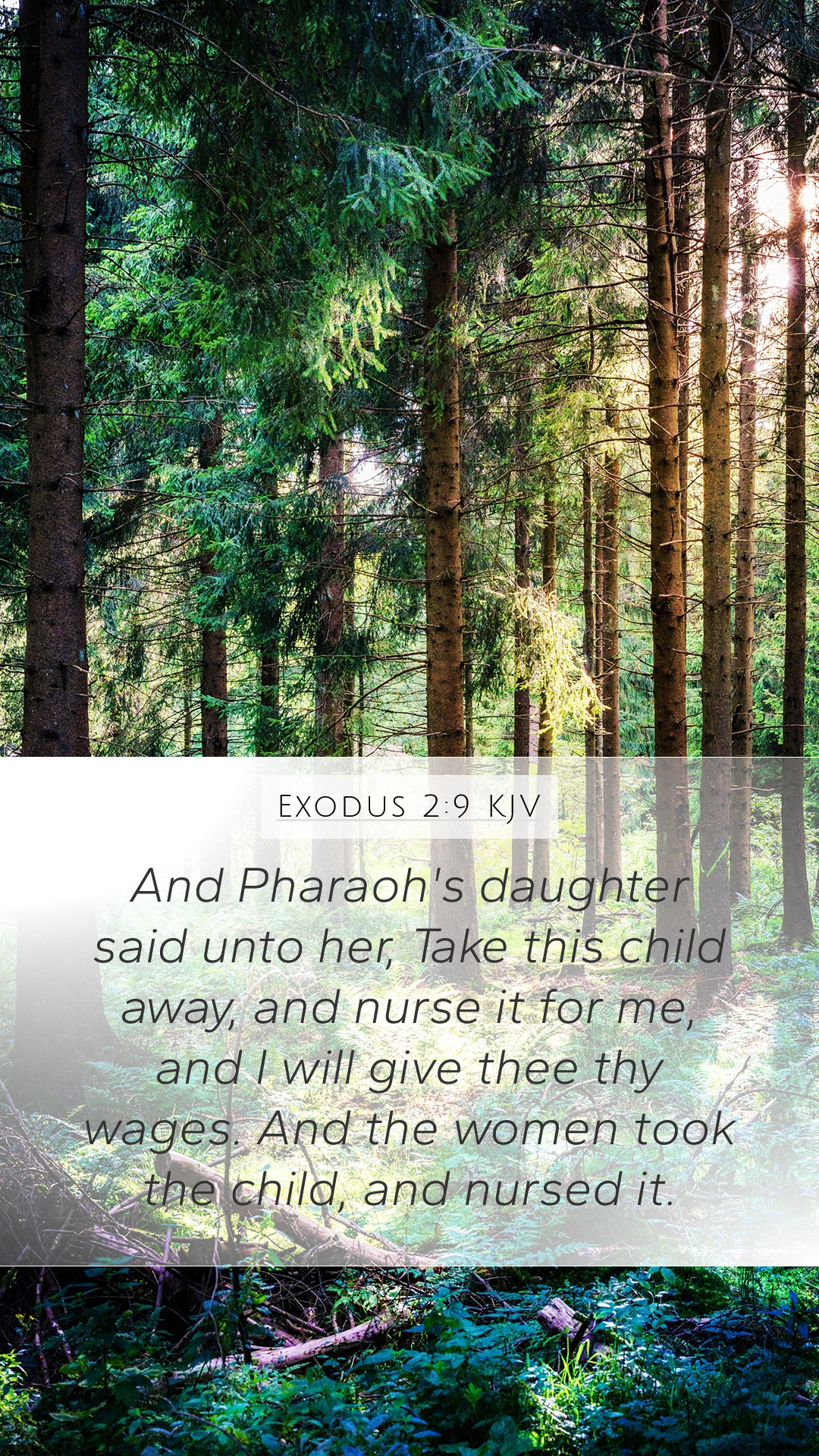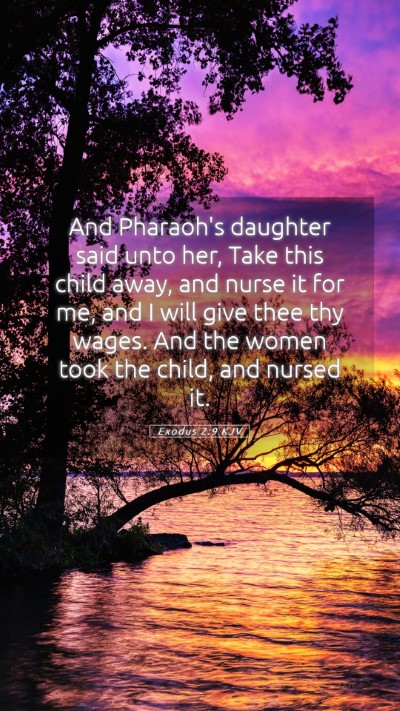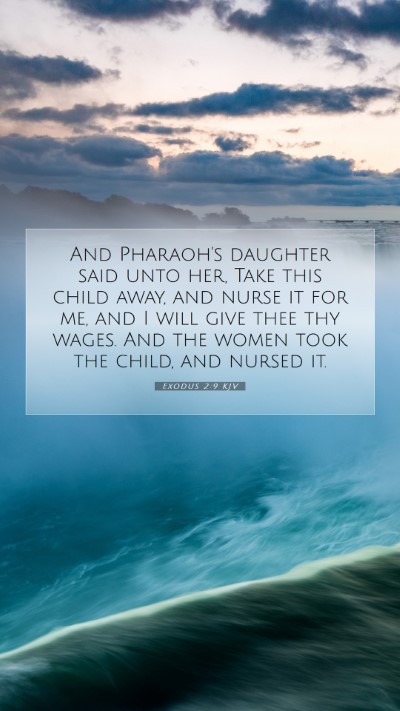Understanding Exodus 2:9
Bible Verse: Exodus 2:9 - "And Pharaoh’s daughter said to her, 'Take this child away, and nurse him for me, and I will give thee thy wages.' And the woman took the child, and nursed it."
Summary of Exodus 2:9 Meaning
This verse captures a pivotal moment in the life of Moses, illustrating the divine plan that unfolds through seemingly ordinary events. The interaction between Pharaoh's daughter and Moses' mother reveals both the compassion of the Egyptian princess and God's providential care in safeguarding the future deliverer of Israel.
Bible Verse Interpretations
- Matthew Henry's Commentary:
Henry emphasizes the significance of Pharaoh’s daughter's decision. He notes how God uses unexpected people in His plans, demonstrating mercy in a situation that could have ended in tragedy.
- Albert Barnes' Commentary:
Barnes highlights the rewarding aspect of God’s providence. The wages given to Moses' mother symbolize God’s ability to bring benefits from trials. It also indicates the divine arrangement in nurturing future leaders of His people.
- Adam Clarke's Commentary:
Clarke elaborates on the cultural implications surrounding Pharaoh’s daughter. He underscores her courage in adopting Moses, defying societal norms to protect him, which reflects the broader mission of salvation that God initiates through her actions.
Insights into Scripture Analysis
This verse serves as a reminder of the layers of providence in biblical narratives. It encourages readers to consider how everyday interactions can fulfill God's larger purposes. The theme of unexpected aid from the outside reflects the nature of God's grace in Biblical history.
Historical Context of Exodus 2:9
This passage is set against the backdrop of Israel's oppression in Egypt. The choice made by Pharaoh's daughter directly contrasts the brutal edicts of her father and indicates a moral and ethical struggle within the royal household.
Application of Bible Verse
From a practical perspective, Exodus 2:9 can serve as a powerful lesson on how believers can act against injustice and embrace compassion. In our daily lives, it invites us to look for opportunities to help those in need, often in ways we might not expect.
Related Bible Cross References
- Exodus 1:22 - The command of Pharaoh to cast newborn Hebrew boys into the Nile.
- Hebrews 11:23 - The faith of Moses' parents in hiding him for three months.
- Acts 7:20-22 - Stephen's recounting of Moses' early life and the favor he found in the eyes of Pharaoh.
Further Study and Reflection
For those seeking deeper understanding, this verse opens up discussions on God’s sovereignty in guiding history, the role of women in scripture, and the implications of divine favor. Bible study groups can utilize this verse to explore themes of protection, providence, and purpose in life.
Conclusion
Exodus 2:9 encapsulates themes of divine intervention and human compassion. It prompts readers to reflect on the nature of God's workings in their own lives and encourages a commitment to acting justly and mercifully in a complex world. The verse serves as a foundation for understanding other scriptural insights about faith, deliverance, and God's continued guidance through His people.


